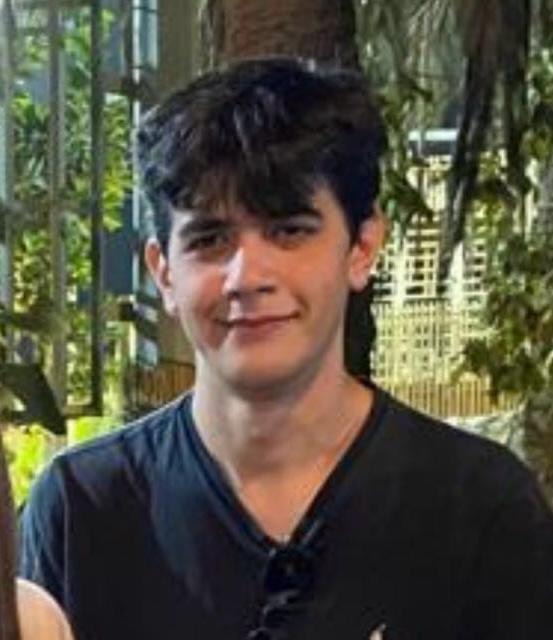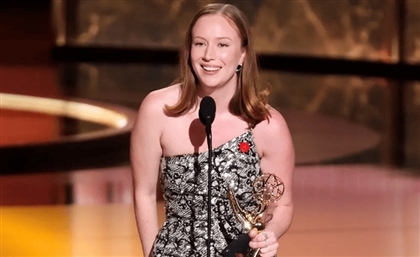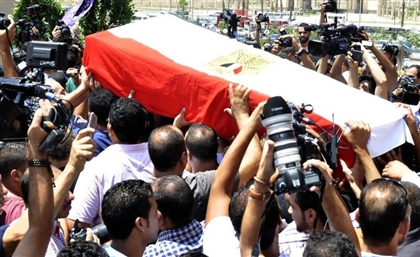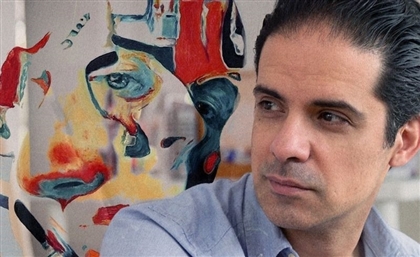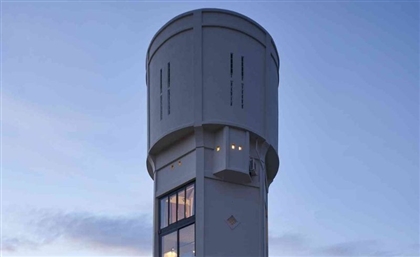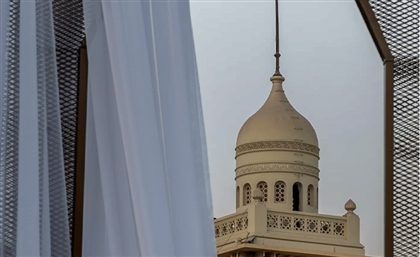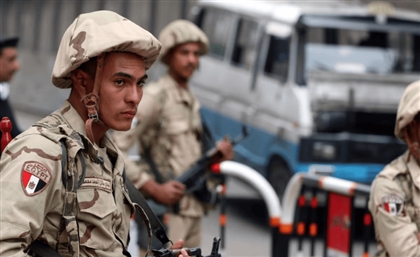Celebrity Hunter: The Legacy of TV Presenter Laila Rostom
Laila Rostom brought Egypt’s stars down to earth. But who, if anyone, ever managed to bring her down?

Laila Rostom was the valedictory face of Egypt’s golden age of television. At the end of her broadcasting career, which spanned most of second half of the 20th century, she had interviewed well over 500 eminent individuals before a live national audience, including the likes of Abdelhalim Hafez and boxer Muhammad Ali. A paragon of eloquence and poise, she exhibited a rare sensibility that was both endearing and, as endearing sensibilities tend to be, desperately enviable to all whom she entranced.
As the television began to roll out across the country in the early 1960s, hers was among the first voices to break through the novel medium. It was a time when owning a television set was a mark of wealth. Those who couldn’t afford one, which composed the overwhelming majority of the population, would scramble to nearby bars, restaurants, or cafés to get a special viewing. To speak through the television was an honour bestowed only among the crème de la crème of the broadcasting society. But Laila Rostom had already been an established name in the business, despite only having been 23 years old at the time.
Laila Rostom had appeared first on the radio, then the nation’s main means of cultural and political communication. As the host of the European Program, she spoke to a French audience for several years before trying her hand at writing for Al-Ahram. Everywhere she went, she always left a lasting impression.
The question remains: why her in particular? Perhaps it was the assured disposition and the quick, precise way she asked her questions. She was direct to the point of discomfort. That was part of her appeal. In an industry often draped in softness and praise, she brought a firm hand and a steady eye. She once said in an interview, "We have this strange mentality that people should constantly honour one another. It’s pure hypocrisy."
She didn’t believe in reverence for its own sake. Instead, she valued clarity. The point of the interview, for her, wasn’t to flatter, but to uncover. That was the premise behind her long-running show, 'Nogoum ‘ala el Ard' (Stars on the Ground), where she stripped public figures of their polish and made them speak plainly.
She was born Laila Abdel Hameed Rostom to an affluent family of Turkish extraction in Cairo. Her paternal uncle was Zaki Rostom, one of the era’s most noted actors, though his old-fashioned thinking and staunch commitment to tradition stopped the young Laila Rostom from going down the same path of show business that he himself had fought to take.
Since birth, she was destined to lead an itinerant life. Her father, Abdel Hameed Rostom, a noted engineer in his own right, was constantly on the move between Cairo, Alexandria and Mansoura for his work. They ultimately settled in the latter, where Rostom attended Catholic school in the city’s affluent Toriel neighborhood.
She was an erudite student, first in Collège de la Sainte Famille, then the American University in Cairo, where she studied journalism and headed the tennis team. She later pursued graduate studies at Northwestern University in the United States. Perhaps the most important thing Rostom gained from her time there was an early encounter with television, which was still a foreign concept back home. She returned to Cairo with something most of her peers didn’t yet have: a firsthand sense of what television could become. The screen hadn’t entered Egyptian living rooms yet - but she knew it would. She had already watched it reshape a culture once.
In 1960, she made her television debut at Maspero, where she quickly rose through the ranks. She became known as the "Maspero icon," a title that spoke to both her wide appeal and her technical authority in front of the camera. In the two decades following her small screen debut, she built a broadcasting career that mirrored the evolving identity of modern Egypt. Her shows became a kind of weekly ritual, drawing together audiences from every corner of the country. She had a way of distilling big personalities into intimate, unguarded moments.
Rostom's interviews were remembered less for their grandeur and more for how grounded they felt. Some of Rostom’s interviewees were notoriously elusive. Some were camera-shy - including actors who thrived on a production set but grew timid in the public eye. Others simply disliked being questioned. But they showed up for her. She interviewed Faten Hamama, Omar Sharif, Ahmed Ramzy, Abdelhalim Hafez, Mohamed Abdelwahab, Farid el Atrash, Shadia, and Nizar Qabbani, among others. Even Indira Gandhi sat across from her, answering questions in English with the ease of someone used to being listened to.
To be interviewed by Laila Rostom was to be canonised in the Egyptian hall of fame. She was known in the press as "the celebrity hunter," not because she chased after fame, but because fame kept showing up at her door. Nowhere was this more apparent than in her 1964 interview with Ahmed Ramzy, a young actor at the peak of his fame. During the segment, Rostom teased him about a blue pendant he wore around his neck. "Yakhti ʿaleih," she said with a mock sigh, and the studio erupted in laughter. Ramzy blushed. The exchange didn’t just humanise him - it showed how masterfully she could tilt the frame of the conversation.
In 1962, she married businessman Hamed el Kurdy. Five years later, the couple moved to Beirut, where she began working with Télé Liban. She would live and work there for a significant portion of her life, long enough to absorb the city’s rhythms and inflections. Her accent, when she chose to adopt it, carried a Lebanese lilt so effortless it fooled even native speakers. Beirut became a part of her cadence. Her programs there extended her reach beyond Egypt and brought her into the orbit of regional intellectuals and artists. Her friendships with Salwa Hegazy and Amani Nashed dated back years, well before she moved to Beirut. But Lebanon gave their connection new meaning. From afar, they kept in touch, updating one another on work, health, and the odd personal detail that never made it to broadcast. Of the two, she was especially close with Hegazy. When one of them fell ill, the other would step in and deliver the broadcast with no questions asked. The bond was unshakeable.
In 1973, when Rostom was in Lebanon, she overheard two salespeople discussing a plane crash. "They say she was a famous broadcaster in Egypt," one of them said. Rostom approached them, asking who they were referring to. They didn't know her name. She made a few phone calls, and soon after, learned that it was Salwa Hegazy, whose plane had been shot down by Israeli forces. She never quite recovered from the news. Until her death, she spoke of it with heaviness and sorrow.
Tragedy had touched her life once before. In 1963, her younger brother Nabil, a pilot, died in a crash near Bombay. She had been at the height of her fame, but disappeared from the air for several weeks. When she returned, her tone was quieter, her pace more deliberate. The glamour remained, but the joy dimmed.
In time, she left television quietly, just as she had entered it. She appeared less frequently in the 1980s, and by the 1990s, she had retired altogether. But her legacy was sealed. To this day, hers remains one of the few names from Egypt’s media establishment that still carries weight, reverence, and warmth in equal measure.
Trending This Week
-
Feb 16, 2026







